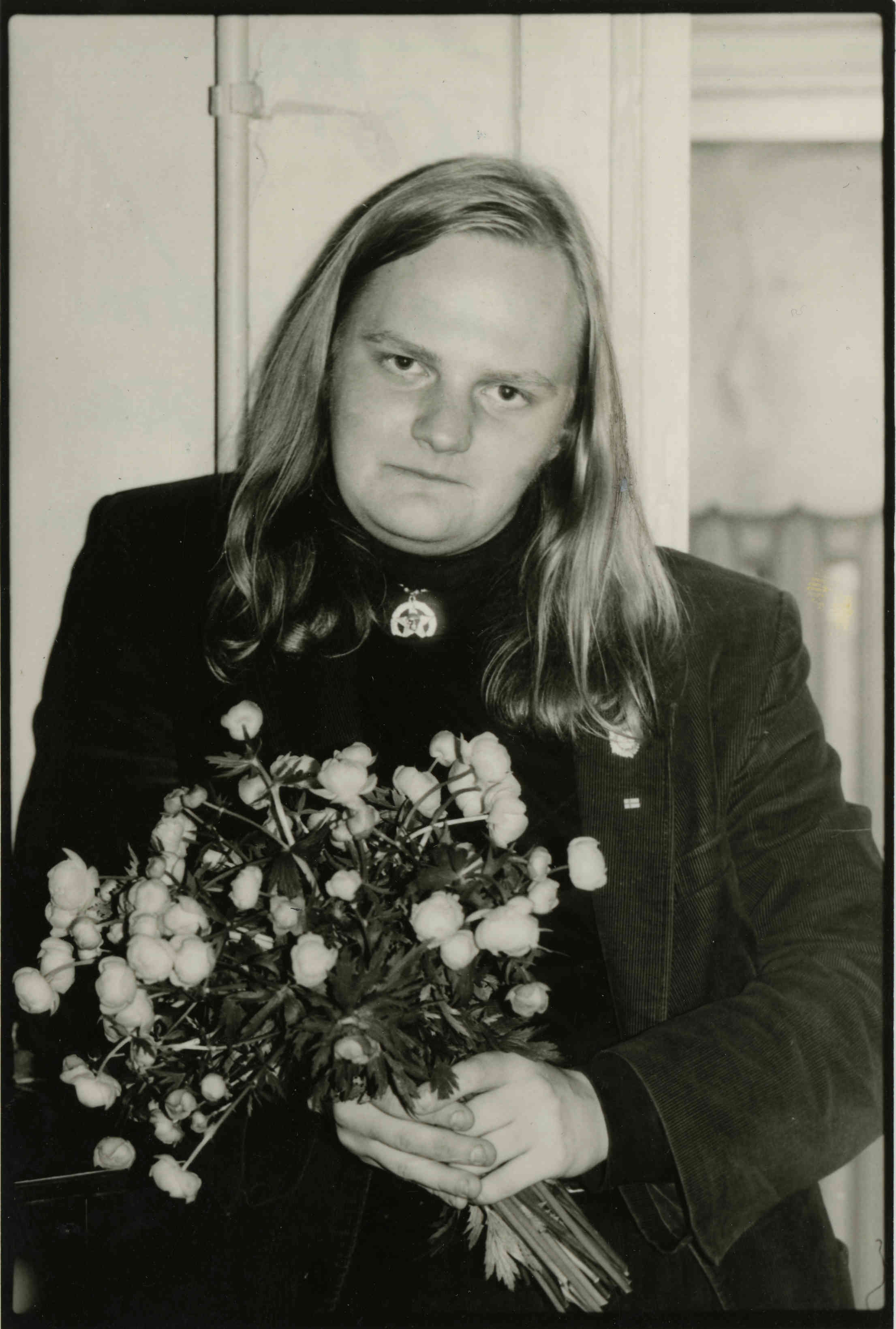
Karl Martin Sinijärv
Poems 
Short stories
Non-fiction
About Karl Martin Sinijärv
Karl Martin Sinijärv (born 4 June 1971) is a poet.
Sinijärv was born in Tallinn. He attended school in Tallinn and studied Estonian and English philology and law at the University of Tartu. He has worked for the press, at advertising companies, been the presenter of cultural broadcasts OP! and Jüri Üdi klubi (‘Jüri Üdi Club’) on Estonian Television. As of 2023, Sinijärv works as cultural adviser of the National Library of Estonia. He has participated in the literary groupings Hirohall and Estonian Kostabi Society. He has been a member of the Tartu Young Authors’ Association and, from 1992, of the Estonian Writers’ Union (chairman 2007–2016). He has been awarded the Order of the White Star, Class 4 (2013). His grandfather was the poet Erni Hiir (1900–1989).
Sinijärv has published poetry in the press from the late 1980s; his first poetry collection Kolmring (‘Threecircle’) appeared in the poetry cassette of 1988 together with the texts by Tõnu Trubetsky, Ringo Ringvee and Märt Väljataga. Sinijärv is notable for his idiosyncratic manner of expression in which the avant-garde styles of the early 20th century and language games and experiments play a significant role. An essential feature of his poetry is ethnofuturism, which merges the archaic content and the futurist form or the archaic form and modern content. Some of his poems, however, are more lyrical. In addition to futurist and surrealist allusions, connections with Anglo-American and rock culture have a significant place in his creation; his poems include quotations and parts of sentences in English. Healthy hedonism also has its place.
The collections Vari and viisnurk (‘Shadow and Pentagram’, 1991) and SürWay (1992) contain hints of futurism, surrealism and the style characteristic of Estonian poetry of the 1920s – ‘poetry of the time’ (ajaluule). There are abundant different linguistic devices and puns. In the first collection, the tonality is mainly lyrical, in the second – surrealist. Neli sada keelt (‘Four Hundred Languages’, 1997) was printed on sheets of beer-bottle labels like Lendavad sead (‘Flying Pigs’) by Albert Kivikas in 1919. From the second half of the 1990s, his poetry has become more serious and mundane, e.g., the collection Artutart & 39 (2002), which received the Literature Endowment Annual Award. Among everything else, the collection includes several culinary allusions, which hint at another of Sinijärv’s hobbies; namely, he has also acted as a food critic and published Poissmehe kokaraamat (‘Bachelor’s Cookbook’, 2000).
Playfulness and searches for the form are also expressed in three collections with the title Kaardipakk (‘Card Deck’, 2001, 2006, 2011) where each playing card has, in addition to usual markings, a poem. Along with Sinijärv, the collections include texts by Jürgen Rooste, Elo Viiding, Asko Künnap and Triin Soomets. The collection Kuradiratas (‘Devil’s Wheel’ 2018) by Sinijärv, Rooste and Künnap is also in the form of cards. This trio has also published other joint works.
Sinijärv has written many literature reviews and afterwords, compiled collections and translated.
A. K. (Translated by I. A.)
Books in Estonian
Poetry collections
Kolmring. Tallinn: Eesti Raamat, 1989, 47 lk. [Kogumikus ‘Kassett ’88.’]
Vari & viisnurk. Tartu: Eesti Kostabi Selts, 1991, 79 lk
Sürway. Tartu: Polluks, 1992, 93 lk
Neli sada keelt. Tartu: Eesti Kostabi Selts, 1997, 91 lk
Towntown & 28: viies rühm poeese. Tallinn: Varrak, 1999, 87 lk
Karl Martin Sinijärv, Jürgen Rooste, Asko Künnap, Neid vigu me ei korda. Tallinn: Näo Kirik, 2000, 63 lk
Artutart & 39. Tallinn: Tuum, 2002, 75 lk
Karl Martin Sinijärv, Jürgen Rooste, Asko Künnap, Eesti haiku. Tallinn: Näo Kirik, 2010, 93 lk
Krümitor 0671. Tallinn: Näo Kirik, 2011, 1999 lk
Sureliku muuga: Üdiklubilaule ja muid poeese. Tallinn: Näo Kirik, 2012, 94 lk
KMSX: kuidas öelda. Tallinn: Näo Kirik, 2016, 93 lk
Karl Martin Sinijärv, Jürgen Rooste, Asko Künnap, Kuradiratas. Tallinn: Näo Kirik, 2018
Irdtriiv: valimik mõtte- ja tundeluulet aastatest 2016-2021. Tallinn: Näo Kirik, 2021, 240 lk
Children’s books
Karl Martin Sinijärv, Jürgen Rooste, Wimberg, Kolme päkapiku jõulud. Tallinn: Huma, 2002, 79 lk
diPri jõululuuletuste spikker 2016. Tallinn: Dipri, 2016, 46 lk
Prose
Karl Martin Sinijärv, Jüri Pino, Sigalahe suvi. Tallinn: Varrak, 2004, 215 lk
Travelogues
Karl Martin Sinijärv, Jürgen Rooste, Asko Künnap, Rokenroll. Tallinn: Go Group, 2013, 157 lk
Miscellaneous
Poissmehe kokaraamat. Tallinn: Ilo, 2000, 28 lk [2. trükk: 2012]
KünnapRoosteSinijärv. Tallinn: Näo Kirik ja Ühinenud Eesti Karmavõlglased, 2009, 95 lk


